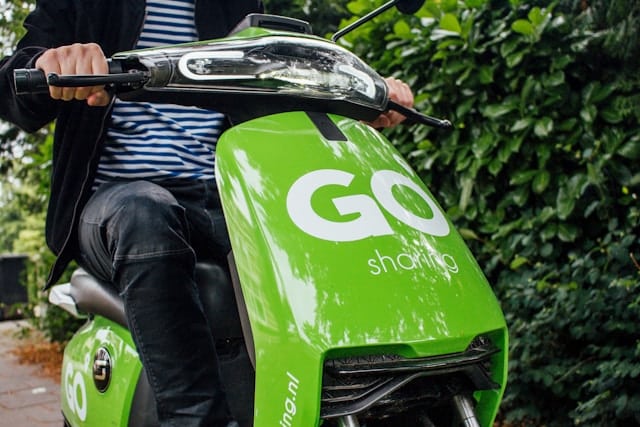What Innovations Are Driving the Electric Scooter Sharing Market in Major UK Cities?

Major UK cities are continually experiencing a mobility transformation, thanks to the rise of electric scooters. Known for their eco-friendliness, efficiency, and convenience, electric scooters are rapidly becoming a common sight on city roads. No longer a novelty, they have evolved into an essential part of urban public transport systems. This surge in scooter popularity is largely driven by the rise of scooter-sharing companies, which offer affordable and accessible mobility to city dwellers. The scooter-sharing market is booming, and a host of innovative companies are leading the charge.
Let’s delve into the details of some of the key innovations driving the growth of the electric scooter sharing market in major UK cities.
Dans le meme genre : What’s the Potential of Voice-Activated Smart Home Devices for the Visually Impaired?
1. Innovative Battery Technology
One of the significant factors driving the electric scooter market’s success is the innovative improvements in battery technology. Electric scooter companies are continually developing advanced, long-life batteries that can withstand the rigours of constant use in a sharing environment.
The latest innovations in this area involve swappable batteries. These are lightweight, portable, and quick to exchange, allowing for seamless, uninterrupted service. With swappable batteries, scooters can remain on the streets for longer periods, increasing availability for users and reducing downtime for charging.
Dans le meme genre : How Could Swarm Robotics Transform Search and Rescue Missions in the UK?
Another innovative battery technology involves smart charging solutions. This includes solar-powered charging stations and software that manages the charging process to optimize battery life and reduce electricity costs. These innovations not only improve the utility and reliability of electric scooters but also contribute to their eco-friendly reputation.
2. Advanced Fleet Management Systems
Fleet management is a critical aspect of running a successful scooter-sharing company. With potentially thousands of vehicles spread across a city, tracking, maintaining, and optimizing the use of the fleet is a complex task.
Innovative companies are utilizing advanced technologies such as GPS tracking, AI, and data analysis to manage their fleets efficiently. These technologies allow companies to track each scooter’s location, usage patterns, and battery status in real time. They also support predictive maintenance – identifying potential issues before they cause downtime, and scheduling preventative repairs.
Moreover, advanced fleet management systems can analyze usage data to identify hotspots of demand. This enables companies to optimally distribute their scooters, ensuring they are always available where needed. This form of dynamic rebalancing significantly enhances user convenience and drives increased usage.
3. Smart Safety Features
Safety is a primary concern in the electric scooter market. Companies are continually innovating to ensure users can ride safely, and to reassure cities and regulators of their commitment to public safety.
One such innovation is the implementation of geofencing technology. This technology creates virtual boundaries in a city, and can limit a scooter’s speed or even stop it entirely in certain areas. This can be used to enforce speed limits in busy pedestrian areas, or to prevent scooters from being used in prohibited areas.
Other smart safety features include integrated lighting systems for increased visibility, anti-tampering systems to prevent misuse, and automatic alerts for maintenance issues.
4. Integration with Public Transport
Another exciting trend in the electric scooter sharing market is the increasing integration of scooters with other forms of public transport. Electric scooters are viewed as a solution to the "last mile" problem – the challenge of covering the short distance between a transport hub and a user’s final destination.
Innovative companies are partnering with public transport operators to offer combined services. Users can seamlessly switch from a train or bus to a scooter, with a single ticket or subscription covering all modes of transport. This integration is not only convenient for users, but it also promotes the use of public transport by making the overall journey more efficient.
5. COVID-Ready Scooters
The onset of the COVID-19 pandemic has brought about changes in the way we view and use public transport. In response to this, scooter companies have had to innovate to ensure their services are safe and appealing.
Many have introduced enhanced cleaning protocols, such as regular disinfection of scooters and the provision of sanitizing wipes for users. Some have even developed self-cleaning handlebars, using materials with antimicrobial properties.
With these innovative features and systems, the electric scooter sharing market is well set to continue its growth in major UK cities. The future of urban mobility is increasingly electric, and scooters are leading the way.
6. AI-Powered Demand Forecasting
To ensure the success of the scooter-sharing model, companies need to accurately predict demand, a task that is becoming more efficient with the innovation of AI-powered demand forecasting.
Artificial intelligence can process vast amounts of data, including historic trip data, weather patterns, local events, and more, to predict where and when scooters will be needed. By using machine learning algorithms, these systems can continually improve, making more accurate predictions over time.
Having a reliable understanding of demand patterns allows companies to distribute their scooters more effectively, ensuring they are available in high-demand areas and times. This helps to maximise the use of each scooter, reduce unnecessary repositioning, and enhance user convenience.
Furthermore, by reducing wasted trips and energy use, AI-powered demand forecasting also contributes to the environmental benefits of electric scooters. This is particularly important as cities around the world strive to reduce their carbon footprints in the face of global climate change.
7. Regulatory Compliance Innovations
As electric scooters continue to gain popularity, local authorities are establishing regulations to ensure safe and responsible use. This presents scooter-sharing companies with the challenge of ensuring regulatory compliance across their fleets.
In response, innovative companies are developing systems to manage compliance effectively. For example, some companies use geofencing technology to enforce local regulations, such as speed limits and no-ride zones. Others use AI to monitor users’ driving behaviour and provide real-time feedback, encouraging safe riding habits.
In addition, the use of data analytics can help companies to demonstrate their compliance to regulators. By providing clear, accessible data on scooter usage, maintenance, and safety incidents, they can show they are meeting their obligations and contributing positively to the urban mobility landscape.
Conclusion
The market for shared electric scooters in the UK’s major cities is experiencing tremendous growth, fuelled by innovative technologies and solutions. Advanced battery systems extend the scooters’ operational time, while smart fleet management systems and AI-powered demand forecasting maximise their utility and efficiency.
Moreover, the integration of scooters with public transport systems, the implementation of smart safety features, and the introduction of COVID-ready protocols enhance user convenience and safety. These innovations are propelling the electric scooter sharing market forward and are likely to continue driving its expansion.
Electric scooters are not only transforming the way people move around cities, but they are also contributing to a more sustainable, eco-friendly urban environment. As technology continues to evolve and regulations adapt, the future of urban mobility is looking increasingly electric, with shared scooters at the forefront.
